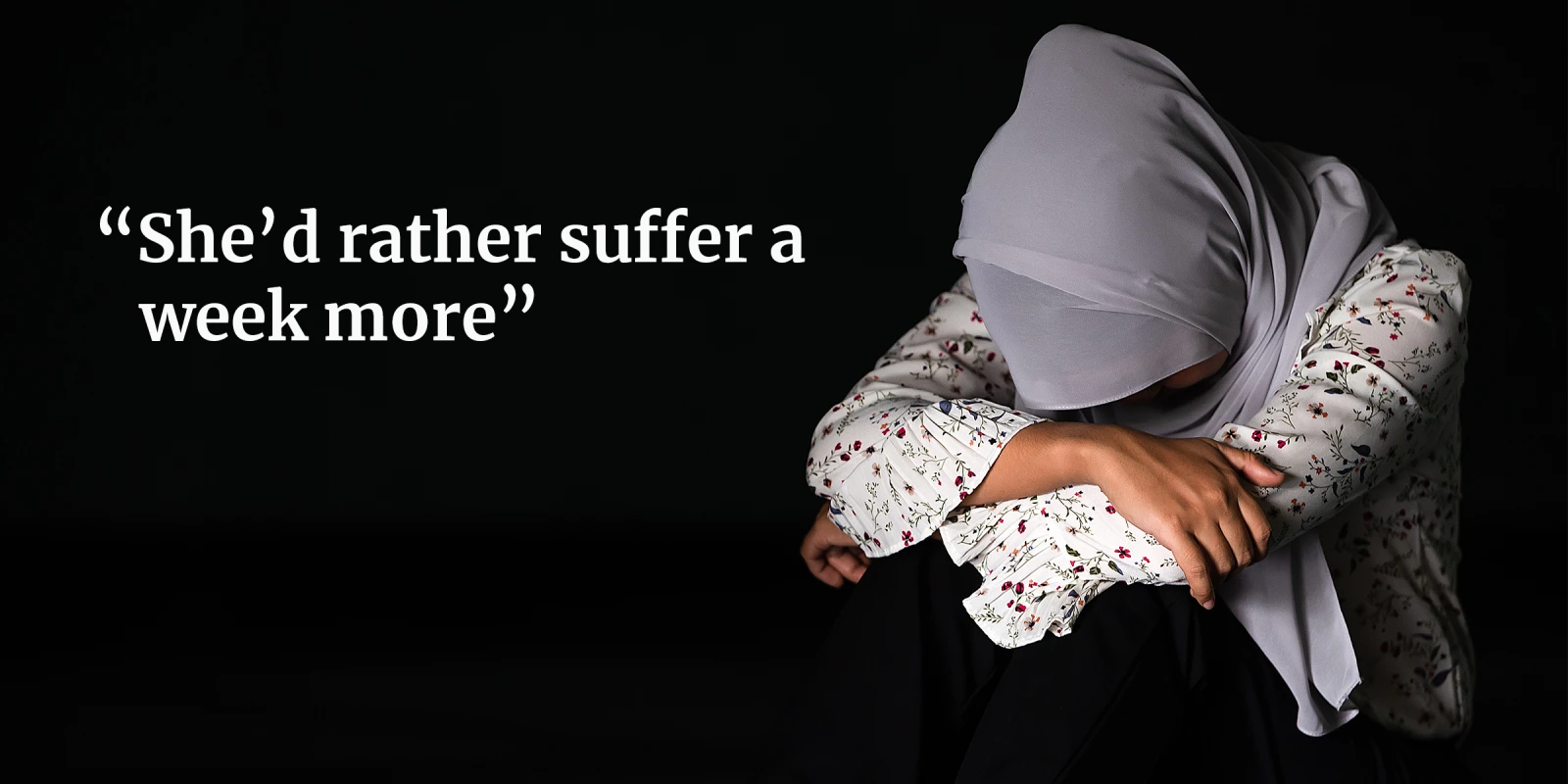This is part of the Medical Humanities Series on Op-Med, which showcases creative work by our members. Do you have a poem, short story, creative nonfiction or visual art piece related to medicine that you’d like to share with the community? Send it to us here.
It had been a week since Kafa had fallen on her arm She was cooking maqlouba in the kitchen when she slipped Her arm smacking against the hard-tiled floor All of a sudden, she heard a crack It was like her elbow had popped out of place Bending it felt funny, like it was something She wasn’t supposed to do “Ya Rab! Oh God!” she cried out in pain, embracing her throbbing arm The next day, she went to the Phoenix doctor The doctor took one look at her blue, swollen elbow and wrote up orders for her to get an X-ray She undressed herself, wearing a light robe that the nurse had given her She stepped into the X-ray room, awaiting the technician Her heart beating rapidly at the thought Of being naked for too long What if someone who wasn’t supposed to be here Came in and saw her like this? A man suddenly appeared, declaring that he was the X-ray technician He was holding a lead vest to drape over her And boldly stated that he would position her arm Kafa jumped How shameful it is to have her body exposed And touched by this man It was against her beliefs If she wore a hijab and fully covered herself in clothes around men How could she let a man even get near her and touch her? “No man, please!” Kafa uttered in her limited English, her face panic stricken and scared The technician looked taken aback His brows furrowed as his features morphed to take on The face of an angry man “Well I’m the only one here so I have to do it,” he said sternly “No!” Kafa bellowed, stepping away from the technician Who she felt began to look at her spitefully As if she was a child with unreasonable demands Annoyed, he stomped out Muttering something under his breath And then there was silence in the room Kafa took a deep breath How hurt she felt that the man did not respect her In responding the way he had Many people she had met in American were kind and compassionate But there were some, like this man, who weren’t Who judged her for way of life and beliefs Who didn’t seem to care Kafa dressed herself and stepped out. Rescheduled the appointment for a week later, despite her aching arm. Made sure a female technician would be there for her. She’d rather suffer a week more of pain Than compromise on her beliefs For this was the proud woman Kafa was and would be No matter where she lived
What was your inspiration? Did other creative works, if any, influence your creation of this piece?
My inspiration was the Syrian refugee women I've worked with and from whom, over time, l have learned of their mental health, burdens, and experiences. I want the opportunity to be able to share those experiences with health care providers. This piece is a portion of a larger project that shares these experiences.
Why did you choose this medium? What interests you about it?
Medical humanities is a wonderful way to express one's thoughts, experiences, and ideas in a way that may engender empathy and understanding. This is why I chose this medium.
How long have you been doing this activity? What got you started?
I have worked closely with Syrian refugee women over the years. While in college, I studied abroad in Jordan where I had the opportunity to research depression and suicidal ideation among Syrian refugee women resettled in Jordanian host communities. That became the basis of my anthropology thesis as an undergraduate at Brown University, in which I wrote about the non-biomedical, individual therapuetic processes of the Syrian refugee women I interviewed. I decided I wanted to continue my work with Syrian refugee women in order to help others understand their mental health burden and experiences, especially healthcare providers. Hence, I decided to embark on this medical humanities project in medical school.
Heba Haleem is a third year medical student at the Warren Alpert Medical School of Brown University. Her interests include medical humanities, medical anthropology, and refugee health.






